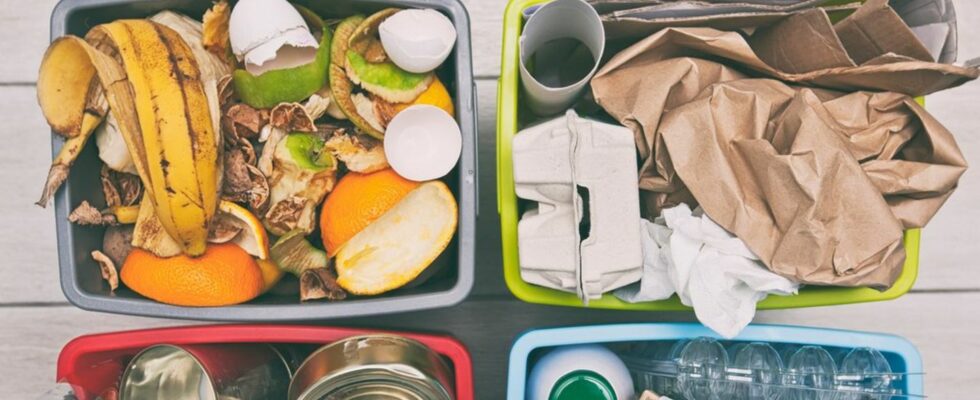International Waste Separation Day is the best time to refresh your knowledge of proper waste separation.
March 7th is International Sorting Day. The inspiration for this came from Eugéne René Poubelle, a senior French official who, on March 7, 1884, introduced the obligation to litter Parisians. In 19th-century Paris, rubbish was dumped on the street right in front of houses. This made for a disgusting sight and led to the spread of numerous diseases. Poubelle then came up with the groundbreaking idea of buckets in which people could separate their waste and which were then emptied by disposal companies. Incidentally, the term “Poubelle” means garbage can in French and is derived from its inventor.
Proper waste separation is the only way products can be recycled and valuable resources reused. However, especially with multi-material products, professional disposal is often a mystery. The Waste lexicon of the Munich waste management company (AWM) provides helpful information on waste separation.
This is how you really separate waste from A to Z:
make-up removal wipes
Anyone who has not yet switched to reusable pads to avoid waste can throw make-up removal wipes in the residual waste bin.
Envelopes with window
Envelopes with plastic windows do not have to be separated before they go to waste paper. The plastic is too small to be recycled.
CDs, CD rooms, DVDs
If you really can’t find anyone who enjoys old CDs, CD rooms and DVDs, there is the option of sending them to the appropriate disposal companies without their cases.
deodorant sprays
As long as they are completely empty, deodorant sprays can be taken to the yellow bin or sack or, as in Munich, to recycling points. However, if there are residues in the spray can, it must be disposed of in a recycling center.
Ice Cream Stick
Instead of old wood, ice cream sticks go in the residual waste. They are too small to be reused.
lighter
Lighters should be emptied before disposal and then thrown in the residual waste bin.
garden waste
Garden waste is best composted yourself or disposed of in a recycling center. The AMW also recommends simply leaving piles of leaves in the garden in the fall. Hedgehogs like to use them as hiding places and places to hibernate.
hairbrush and hair
Hairbrushes end up in the residual waste, untreated human and animal hair can also be thrown into the organic waste bin.
yogurt cup
When it comes to yoghurt pots, the motto is: back in the glass. It is best to rely exclusively on reusable glasses when shopping.
Bill
Blue receipts can be recycled, the white ones are made of thermal printing paper. This contains harmful chemicals that should not be released into the environment. Therefore, it is better to dispose of the receipt in the residual waste.
Medications that have expired
Medicines that have expired are considered problematic substances and must be handed in at a recycling center.
nail polish
Nail polish and nail polish remover are also among the so-called problem materials and must therefore not be disposed of with the residual waste, but must be taken to the recycling center.
oil
Waste oil that is left over from cooking must never be emptied into the sink or toilet, so as not to get into the groundwater. It is best to collect it separately in a container and then take it either to a recycling center or back to the supermarket. The trade is obliged to accept waste oil, for this only the presentation of the receipt is necessary. The same applies to motor and lubricating oil.
pizza box
According to AMW, pizza boxes must be free of leftovers so that they can be disposed of as waste paper. Of course, leftovers go in the compost bin.
roller skates
Roller skates or inline skates may be disposed of in the residual waste bin. However, it should be noted here that all waste that ends up in the residual waste goes to the waste incineration plant. Therefore, you should really only dispose of the waste that can no longer be recycled. The same applies here: things that are still in good condition are best given away, donated, sold or exchanged
Shoes
Shoes that are still wearable and not broken can be packed in bags and disposed of in used clothing containers.
handkerchiefs
If handkerchiefs or kitchen rolls were only used to wipe up water and juices, then they can go in the waste paper. If they have been used to clean up other liquids, such as oil or to blow your nose, they belong in the residual waste.
underpants
Underpants, like shoes or clothing, go into the used clothing collection. It goes without saying that these must be clean.
sales packaging
Sales packaging includes, for example, toothpaste tubes, milk cans or flour bags and may be thrown in the yellow bin or taken to recycling points. Basically, the same applies here again: avoid packaging waste. A large proportion of this waste cannot be recycled and is therefore incinerated.
Plastic or bamboo toothbrushes
Whether made of plastic or bamboo, toothbrushes must be disposed of in the residual waste bin.
